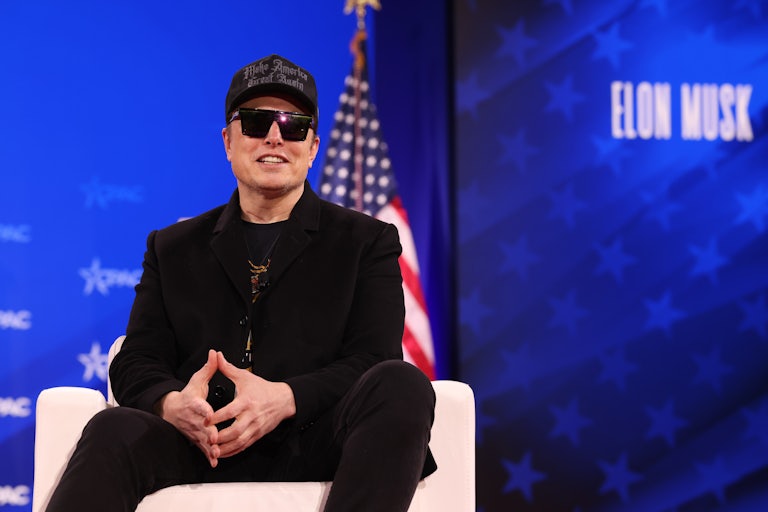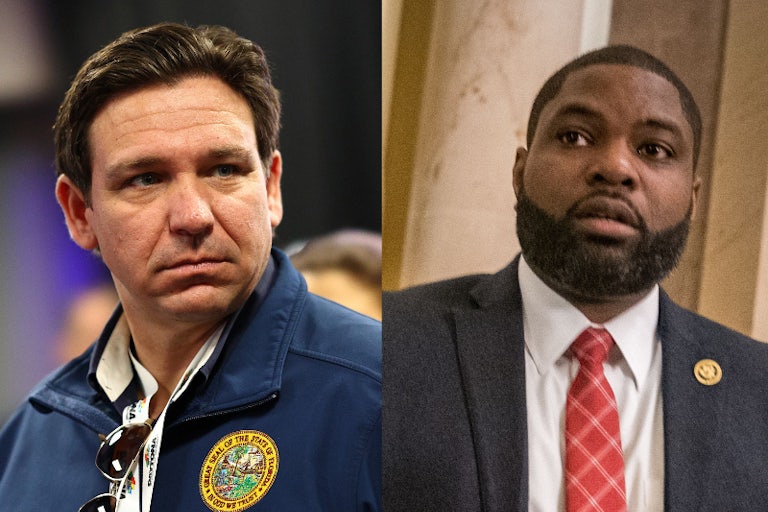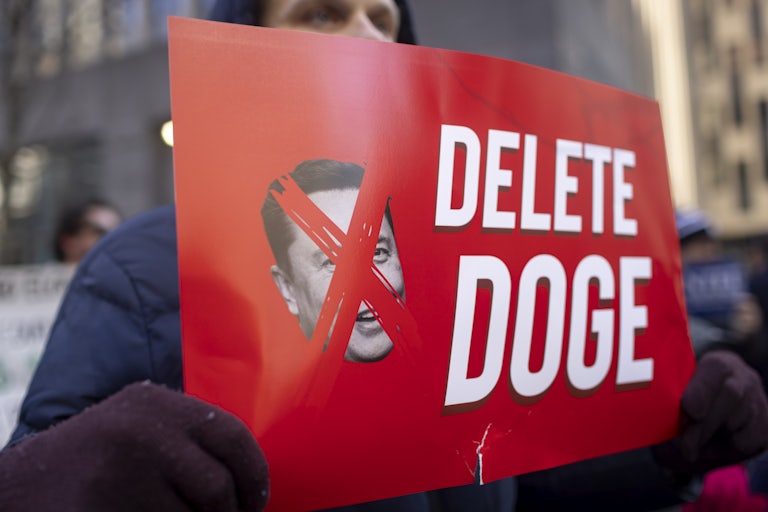Elon Musk Gets Brutal Setback as Dual Legal Losses Block DOGE
The rulings are major roadblocks to Musk’s agenda.

The American checks and balances system is waking up.
On Monday, two different decisions—one from a federal judge and the other from an independent government watchdog agency—came down to limit the power of Elon Musk and the Department of Government Efficiency.
U.S. District Judge Deborah Boardman issued a temporary restraining order that blocks DOGE from accessing and sharing sensitive records from the Office of Personnel Management and the Education Department.
“Specifically, the plaintiffs have shown that Education and OPM likely violated the Privacy Act by disclosing their personal information to DOGE affiliates without their consent,” Boardman wrote in the restraining order.
Multiple labor unions have sued DOGE on the grounds that it was trying to get into databases that held people’s Social Security numbers, banking information, and other “extraordinarily sensitive records of millions of Americans.”
Boardman noted that the unions had “met their burden for the extraordinary relief they seek,” and would suffer “irreparable harm” if DOGE wasn’t stopped. “There is no reason to believe their access to this information will end anytime soon because the government believes their access is appropriate,” she wrote.
The second loss for DOGE and Musk was handed down by the Office of Special Counsel, which helps protect government employees from illegal treatment. On Friday (although it wasn’t released until Monday), the office ruled that DOGE violated protocol in its firing of six employees—and the decision could have implications for the hundreds of thousands of other federal employees who were also fired by Musk and DOGE for “poor performance.”
OSC head Hampton Dellinger ruled that “there are reasonable grounds to believe that agencies engaged in prohibited personnel practices (PPPs) … by terminating the employees in violation of federal laws and regulations governing probationary terminations and reductions in force.”
“Firing probationary employees without individualized cause appears contrary to a reasonable reading of the law, particularly the provisions establishing rules for reductions in force,” Dellinger said in a statement on Monday. “Because Congress has directed that OSC ‘shall’ protect government employees from PPPs, I believe I have a responsibility to request a stay of these actions while my agency continues to investigate further the apparent violation of federal personnel laws.”
Dellinger stated that the employees were obviously not fired for “poor performance.” And if it was for a lack of resources (rather than purely political reasons), then Dellinger noted that Musk and DOGE must go through the normal justification process for the firings.
“There are reasonable grounds to believe that the Agencies improperly circumvented [reduction in force] regulations by terminating Complainants and other probationary employees en masse without regard to each employee’s individual performance for the purpose of restructuring government agencies and reducing costs,” Dellinger wrote.
These are the first of many lawsuits against DOGE and the broader Trump administration. Whether they set a firm anti-purge precedent or simply serve as minor roadblocks remains to be seen.









